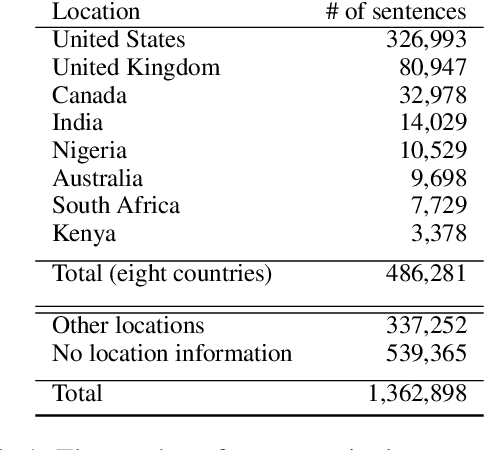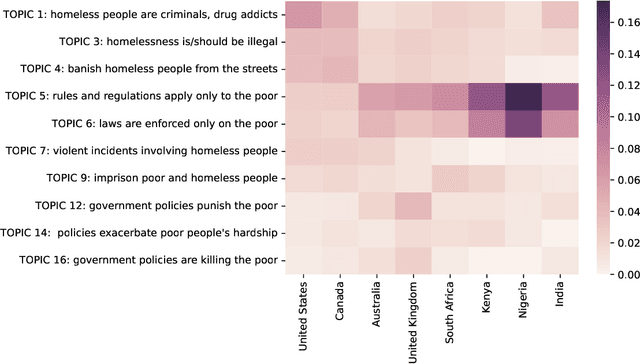The crime of being poor
Paper and Code
Mar 24, 2023



The criminalization of poverty has been widely denounced as a collective bias against the most vulnerable. NGOs and international organizations claim that the poor are blamed for their situation, are more often associated with criminal offenses than the wealthy strata of society and even incur criminal offenses simply as a result of being poor. While no evidence has been found in the literature that correlates poverty and overall criminality rates, this paper offers evidence of a collective belief that associates both concepts. This brief report measures the societal bias that correlates criminality with the poor, as compared to the rich, by using Natural Language Processing (NLP) techniques in Twitter. The paper quantifies the level of crime-poverty bias in a panel of eight different English-speaking countries. The regional differences in the association between crime and poverty cannot be justified based on different levels of inequality or unemployment, which the literature correlates to property crimes. The variation in the observed rates of crime-poverty bias for different geographic locations could be influenced by cultural factors and the tendency to overestimate the equality of opportunities and social mobility in specific countries. These results have consequences for policy-making and open a new path of research for poverty mitigation with the focus not only on the poor but on society as a whole. Acting on the collective bias against the poor would facilitate the approval of poverty reduction policies, as well as the restoration of the dignity of the persons affected.
 Add to Chrome
Add to Chrome Add to Firefox
Add to Firefox Add to Edge
Add to Edge